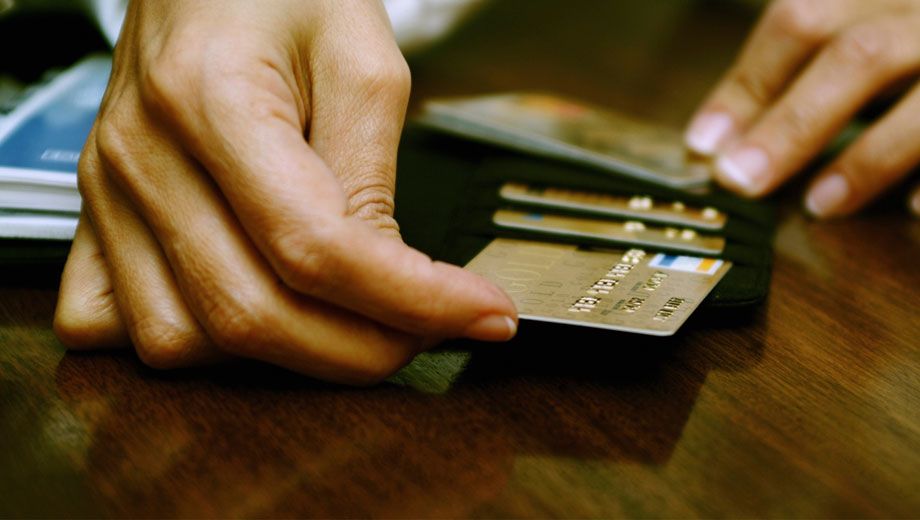Disclaimer
Executive Traveller may receive a commission when you apply for these credit cards via our links.
The information provided on this page is purely factual and general in nature. You should seek independent advice and consider your own personal circumstances before applying for any financial product.
Credit cards are a great companion when jetting abroad – you don’t need to juggle wads of foreign cash, and they’re easy to replace if lost or stolen.
On the other side of the coin, they can also trap unsuspecting travellers with hidden fees, poor exchange rates or confusing merchant names, so it pays to be wary.
Here are our top five tips for seamlessly using plastic on your next overseas trip.
1. Let your bank know you’ll be travelling
It’s always a good idea to let your banks and credit card providers know that you’ll be travelling.
Most card issuers will add a travel note to your account, which avoids your foreign spend from triggering any fraud alerts.
If you forget to notify your bank, your card might face a temporary block for ‘suspicious activity’, resulting a stressful and costly phone call before you can continue spending.
Also, it’s a good idea to have your financial institutions’ international contact details in your phone’s contact list.
If you part ways with a credit card, you’ll be able to quickly have it cancelled and replaced – likely before anyone else has the chance to use it.
2. Memorise your PIN
Many countries now require PIN verification instead of a signature for credit card purchases, so make sure you’ve got yours memorised.
Included on the list is the United Kingdom, Japan and Canada, with the U.S. joining the ranks from October next year.
Without a valid PIN, you risk being unable to shop, eat or even check-in when you arrive at your hotel, as some systems demand a PIN even for pre-authorisations (non-charges).
Australia is jumping on the PIN-only bandwagon from August 1, so get in early and request a PIN now.
3. Always pay in the merchant’s native currency
If your wallet sports a Visa or MasterCard, you’ll have been asked “would you like to pay in Australian dollars?” many a time.
Dynamic Currency Conversion allows merchants to charge customers in their home currency, with the system padding the exchange rate by 1-2% to make it worth their while.
With many Australian banks tacking on extra fees for foreign spend – even if billed in Australian dollars – you could be paying upwards of 5.5% more than necessary.
Stick to paying in the merchant’s native currency, and avoid being gouged by less-than-generous exchange rates.
4. Get receipts wherever you spend
Business travellers might already be accustomed to this, but make a habit of taking the receipt whenever opening your wallet.
Not only do they help with company expense claims, receipts make reconciliation a breeze when merchants show their entity name – rather than their trading name – on credit card statements.
Matching dollar amounts and transaction dates is also useful in Asia and the Middle East, where the local languages don’t use the Latin alphabet.
Better yet, carry a pen and make a quick note on each receipt – “lunch with George” or “drinks with Lisa” is much easier to reconcile than ‘30€ on June 2 at 8:42pm’.
5. Know your limits
Low credit card limits can be troublesome when travelling for an extended period, so never leave home (or your hotel) without knowing that you have money available to spend.
Hotel pre-authorisations – that’s the amount reserved on your credit card when you check-in – can take up to a week to be released, so consider using a separate card for hotel spend.
Travellers with higher credit limits or even those brandishing charge cards with no pre-set spending limits needn’t worry, but should nonetheless use internet banking to monitor their spend.
Over-limit and late payment fees still apply when you’re out of the country, so consider scheduling automatic bill payments to keep accounts up-to-date.
Further reading: Five credit card strategies to maximise your frequent flyer points
Follow Australian Business Traveller on Twitter: we're @AusBT
Disclaimer
Executive Traveller may receive a commission when you apply for these credit cards via our links.
The information provided on this page is purely factual and general in nature. You should seek independent advice and consider your own personal circumstances before applying for any financial product.


Qantas - Qantas Frequent Flyer
07 Apr 2013
Total posts 146
Great advice.
I have mentioned this before, but just for those who may not be aware, make sure you use a credit card for hotel pre-authorisations, not a debit card like Qantas Cashcard as they hold the funds for 30 days, possibly resulting in a negative balance appearing on your account. Credit card pre-authorisations are only held for 5 business days.
Qantas - Qantas Frequent Flyer
25 May 2012
Total posts 580
Credit card pre-authorization time limits are impacted by the agreement between the merchant and their bank, the credit card's issuing bank's policies and the payment network (Mastercard/Visa/Amex/Diners).
"5 business days" is an arbitary number which may apply to your card & the specific merchant, but not to everyone's.
Qantas - Qantas Frequent Flyer
07 Apr 2013
Total posts 146
True Peter, I should say "up to 5 business days". Apologies for any confusion.
11 Mar 2012
Total posts 315
The 28 Degrees Mastercard is a great one for overseas travel (although no good for atm's anymore) with no fees. One of those and a Citibank Plus account should see you through.
21 Sep 2012
Total posts 49
I always use a different card for hotel accommodation because of the pre-authorisation from the card I use for other spending.
Hi Guest, join in the discussion on Five tips for using your credit cards overseas